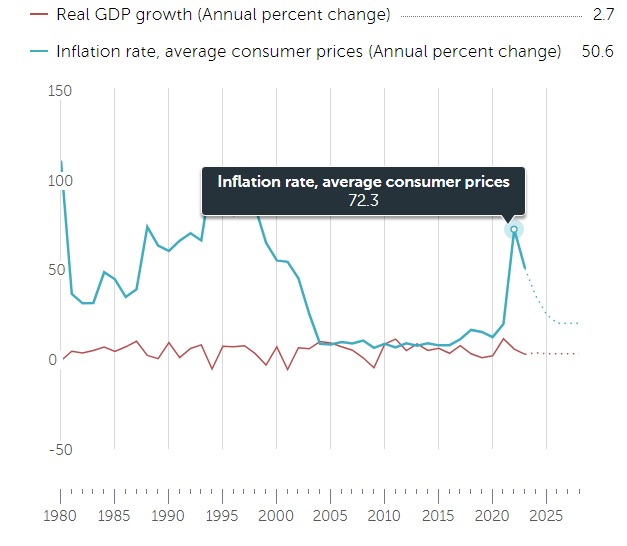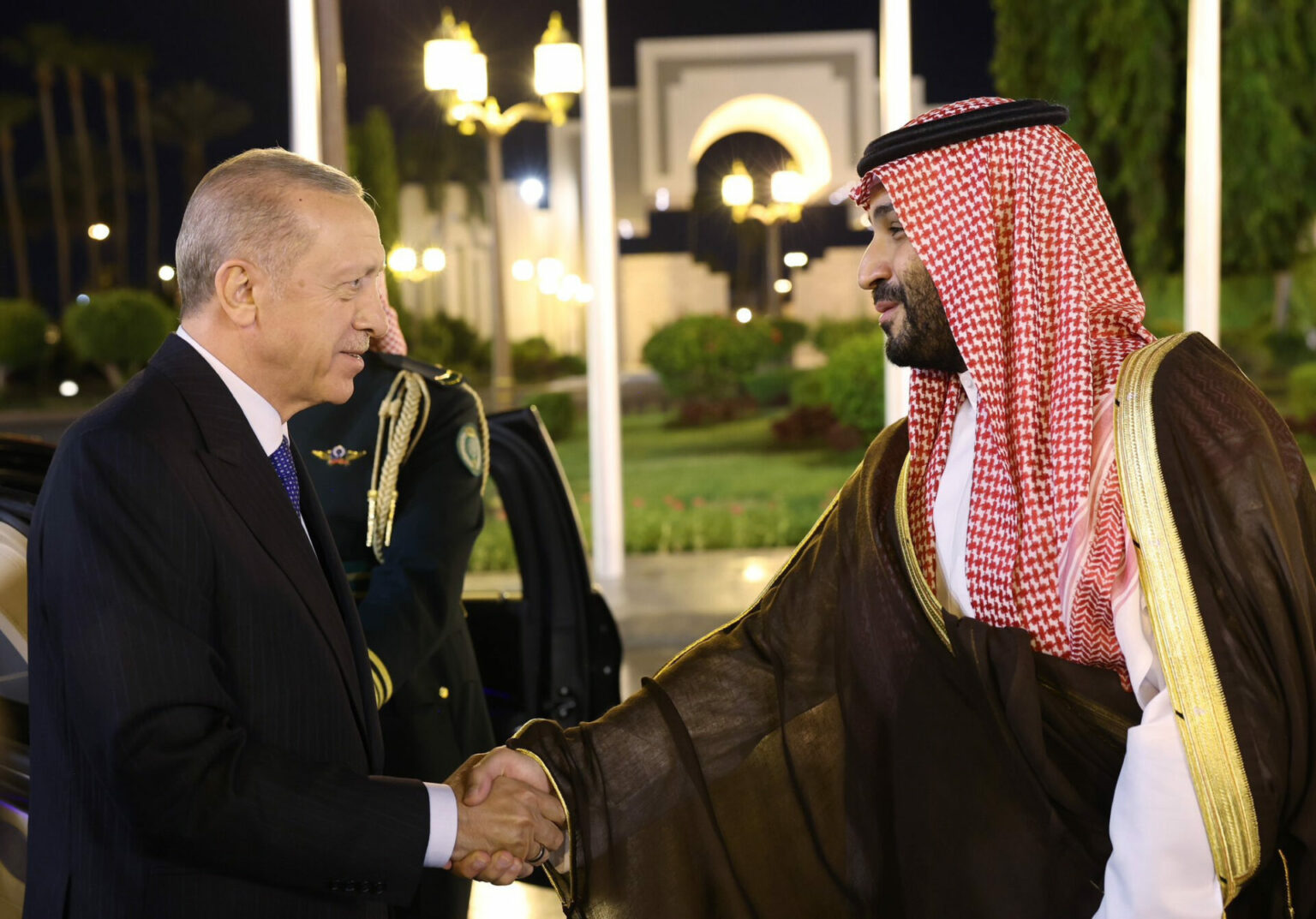Turkish President Recep Tayyip Erdogan embarked on a three-stop tour of Persian Gulf states, including Saudi Arabia, Qatar, and the United Arab Emirates, with the objective of enhancing trade and investment opportunities for Turkey’s struggling economy. The visit signifies the thawing of relations between Turkey and the Gulf Arab states, presenting an opportunity for economic collaboration and regional cooperation.
Table of Contents
Promoting Economic Collaboration for Turkey’s Ailing Economy
Accompanied by a delegation of approximately 200 businesspeople, Erdogan arrived in Jeddah and met with Crown Prince Mohammed bin Salman at Al Salam Palace. During the welcoming ceremony, both leaders expressed their satisfaction with the visit, highlighting the importance of enhancing bilateral relations. Erdogan emphasized the focus on joint investment and commercial initiatives in the upcoming period.
Turkey’s economy has been facing significant challenges, including high inflation and a widening current account deficit. Seeking to address these issues, Erdogan aims to leverage the oil- and gas-rich Gulf states’ resources to bolster Turkey’s economy. Business forums have been organized in Saudi Arabia, Qatar, and the United Arab Emirates to facilitate productive discussions and foster economic collaboration.

Erdogan Restoring Relations & Exploring Opportunities
Prior to the Gulf tour, Turkish officials, including Finance Minister Mehmet Simsek, Vice President Cevdet Yilmaz, and central bank Governor Hafize Gaye Erkan, held talks with counterparts in these countries. The visit comes after recent efforts to repair strained relations between Turkey and Saudi Arabia, as well as the United Arab Emirates, following a decade-long rift stemming from disagreements during the Arab Spring and Turkey’s support for the Muslim Brotherhood.
However, it might not be entirely wrong to consider the possibility that what was previously viewed as Turkey’s support for the Muslim Brotherhood, which was perceived as anti-monarchy has shifted as “Erdogan has reminded Turkey’s citizens of their imperial legacy” & may now be seen as “the New Sultan.” The boycott of Turkish ally Qatar by Saudi Arabia, the United Arab Emirates, Egypt, and Bahrain further strained relations. Recent developments indicate a willingness to restore ties and explore economic cooperation.
Strengthening Economic Ties and Alleviating Pressures
Turkey has received significant financial support from the Gulf states in recent years, which has alleviated some of the economic pressures. Qatar and the United Arab Emirates have provided currency swap agreements worth around $20 billion, while Saudi Arabia deposited $5 billion into Turkey’s Central Bank. Additionally, a trade deal worth potentially $40 billion over the next five years was signed between Turkey and the United Arab Emirates shortly after Erdogan’s re-election last month.
As Erdogan continues his tour, meeting with Qatar’s Emir Sheikh Tamim bin Hamad Al Thani and the United Arab Emirates leader, the outcomes of these engagements are expected to further consolidate the renewed relations and potentially result in concrete economic agreements and partnerships.
MENA’s Path Towards Rebuilding Relations
In light of the shifting global power dynamics, the Middle East and North Africa (MENA) region is demonstrating a remarkable trend of resolving conflicts and forging closer ties. Countries such as Iran, Saudi Arabia, Turkey, Syria, Qatar, and Israel are exhibiting a willingness to set aside their differences and work towards rebuilding the political, social, and economic relations that have been strained in the past.
While major global powers engage in tribalistic competition, MENA’s unique regional camaraderie can be likened to what Emmanuel Adler refers to as “cognitive” regionalism in international relations. Turkey’s visit to the Gulf Arab states marks a positive step towards the consolidation of economic partnerships and regional stability in the MENA region.













